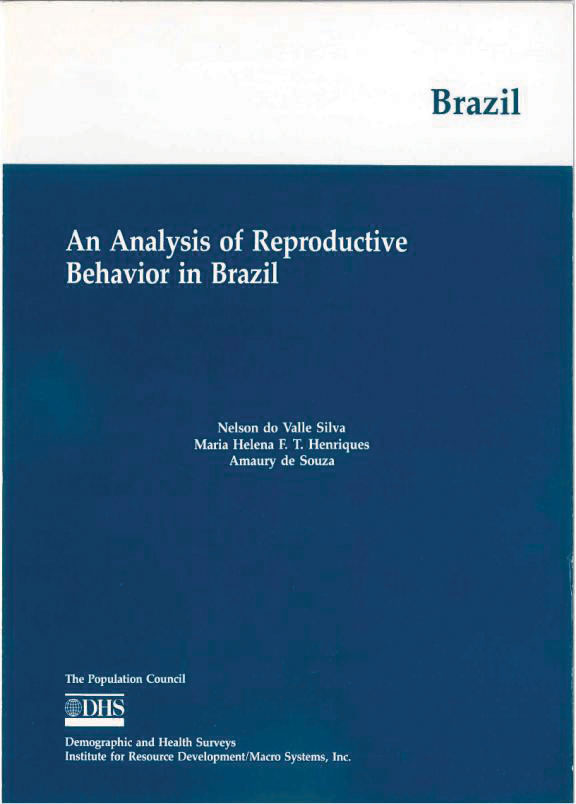- PUBLICATIONS
- JOURNAL ARTICLES
- ACCESS PUBLICATIONS
Publications Summary
- Document Type
- Further Analysis
- Publication Topic(s)
- Fertility and Fertility Preferences
- Country(s)
- Brazil
- Survey
- Brazil DHS, 1986
- Language
- English
- Recommended Citation
- do Valle Silva, Nelson, Maria Helena F.T. Henriques, and Amaury de Souza. 1990. An Analysis of Reproductive Behavior in Brazil. DHS Further Analysis Reports No. 6. Columbia, Maryland, USA: Institute for Resource Development/ Macro Systems Inc.
- Download Citation
- RIS format / Text format / Endnote format
- Publication Date
- April 1990
- Publication ID
- FA6
There is no printed copy available to order.
